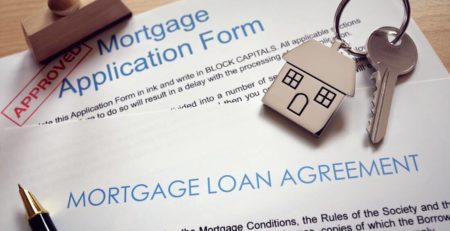What’s Involved for Self-Employed People Getting a Mortgage
Exactly What’s Involved for Self-Employed People Getting a Mortgage?
Being self-employed has never been something that will preclude you from getting passed for a mortgage, however, the fact that getting paid can sometimes be erratic in this line of work can cause problems in getting a lender to accept you or to offer you a competitive rate.
In the last 15 years, the number of people working for themselves has risen from 3.3 million to 4.8 million and that figure is climbing every year. It means that mortgage companies have no choice but to cater to this professional sector or lose an awful lot of profit.
In order to provide a little clarity on the subject, we’ll now take a closer look at what you’re likely to encounter when applying for a mortgage as a self-employed professional.
Getting Approved When Self-Employed
When you apply for a mortgage in a self-employed capacity, it will require you to fill out more forms than someone who’s on PAYE, but in the whole scheme of things, it’s largely the same process with a different set of income information needing to be provided. Since self-cert mortgages were removed in 2008 due to being an unreliable way to measure income, that’s how things have been.
What’s Needed for a Mortgage?
Essentially, when you work for yourself and you apply for a mortgage, you have to supply more details of your income than the standard 3 months’ worth of payslips that PAYE applicants have to. However, these extra hoops you have to jump through are not too taxing, so it shouldn’t deter you from applying.
Sole traders and business owners might be able to get away with providing as little as 12 months of accounts to the lender, so long as said accounts have been compiled by a certified accountant. However, typically speaking, mortgage lenders base their decisions on the last 2 years of your pre-tax profits. This isn’t a hard and fast rule, so it will depend on your individual circumstances.
Where things get slightly trickier is for self-employed contractors who have to also provide evidence of future work they have lined up. Again, not a definitive rule, but one that you might come up against with some lenders.
Your Business Setup Can Affect Your Mortgage
Another aspect of your business that can affect the mortgage application process is how your business is organised. For example, sole traders often need to present an SA302 self-assessment form, detailing all income, whereas if you run a partnership, only the amount of your individual share of the profits will be taken into account. And ironically, if you are a director of a limited company, it might be that your retained profits aren’t considered, meaning that you could find it more difficult to obtain a mortgage than those who work for you.
Talk to the Professionals
The fact is that there are lots of opportunities out there for self-employed people to get the mortgage they need to realise their home-ownership ambitions. However, there are lots of caveats and rules that need a guiding hand to help you make the most of what’s available. That’s why we’d always recommend talking to a professional before making any life-changing decisions.
At REMOUK, we provide expert advice on mortgages to our many clients across the country, with everything we do adhering to the guidelines set down by the Financial Conduct Authority (FCA). If you’d like more information on anything we’ve talked about here or about how we can help take the stress out of the situation, come and visit us online at www.remouk.co.uk.
If after browsing through, you have any questions you’d like answering by one of our friendly experts, give us a call on 0113 873 0113 and one of our team will do everything they can to help.
Thanks for reading. We’ll back with tips advice and guidance from the world of mortgages next time.
YOU MAY HAVE TO PAY AN EARLY REPAYMENT CHARGE TO YOUR EXISTING LENDER IF YOU REMORTGAGE.
A MORTGAGE IS A LOAN SECURED AGAINST YOUR HOME. YOUR HOME MAY BE REPOSSESSED IF YOU DO NOT KEEP UP REPAYMENTS ON YOUR MORTGAGE OR OTHER DEBT SECURED ON IT.











